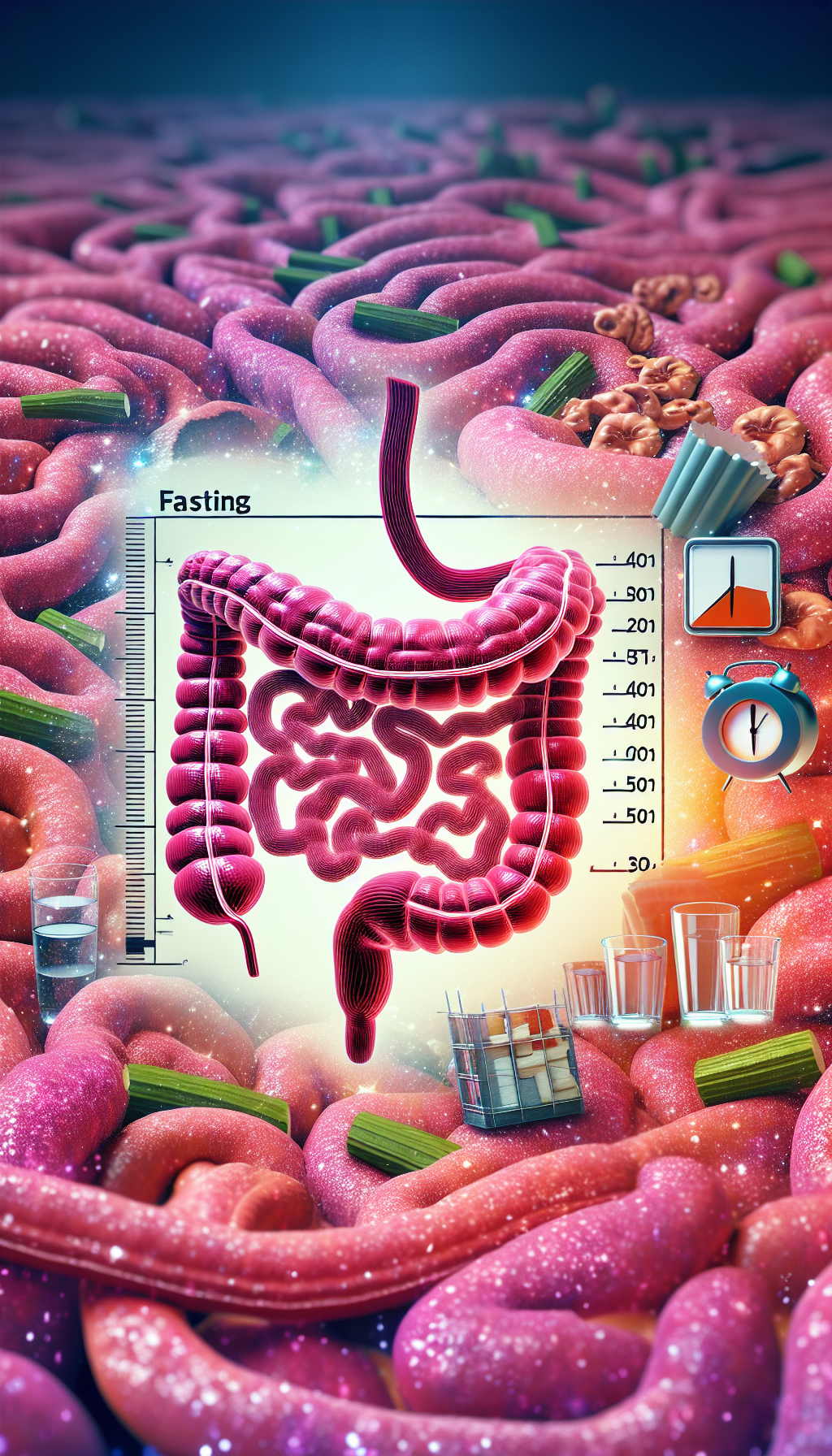In recent years, the practice of fasting has garnered significant attention not only for its weight management potential but also for its profound impact on gut health. As the understanding of the human microbiome deepens, the correlation between fasting and the renewal of gut health has become a focal point for researchers and health enthusiasts alike. This article delves into the mechanisms through which fasting contributes to digestive wellness, and how this ancient practice could be the key to unlocking a healthier gut.
Understanding the Gut Microbiome
Before exploring the benefits of fasting on gut health, it’s crucial to understand the ecosystem within our digestive tract. The gut microbiome is a complex community of bacteria, viruses, fungi, and other microscopic living things that reside in our gastrointestinal system. These microorganisms play a pivotal role in our overall health, influencing digestion, immune function, and even mental well-being. A balanced and diverse gut microbiome is essential for optimal health. Conversely, an imbalance, known as dysbiosis, can lead to a host of health issues.
For further reading on the importance of a balanced gut microbiome, consider the insightful discussion provided in "The Role of Gut Microbiota in Disease Prevention".
Fasting and Gut Health Renewal
Fasting, the voluntary abstinence from food and drink for a specific period, can initiate a process of gut renewal. During fasting, the digestive system gets a much-needed break from its constant workload. This rest period allows the gut to repair and maintain itself, potentially leading to improved digestion and absorption of nutrients upon refeeding.
Intermittent Fasting and Autophagy
A particular focus has been on intermittent fasting (IF) and its ability to induce autophagy. Autophagy is a cellular clean-up process, where the body’s cells break down and recycle damaged components. This process is beneficial for the gut as it can lead to the removal of old and dysfunctional cells, making way for the growth of new, healthy cells. Autophagy is also linked to longevity and reduced inflammation, both of which positively impact gut health.
For a deep dive into the body’s renewal processes during fasting, "Using Probiotic Foods to Naturally Improve Gut Health" offers an enlightening perspective.
Fasting, Bile Acids, and Microbiome Composition
Fasting can alter the production and flow of bile acids, which are crucial for digesting fats and regulating the microbiome composition. During fasting periods, the composition of bile acids changes, which can have a profound impact on the types of bacteria that thrive in the gut. Some research suggests that fasting can increase the diversity of the microbiome, which is a hallmark of good gut health.
Gut Barrier Function and Fasting
The gut barrier is our first line of defense against pathogens and toxins. Fasting has been shown to strengthen this barrier by promoting the integrity of the mucosal lining and increasing the production of gut mucins, proteins that protect the gut lining. A strong gut barrier is essential for preventing unwanted substances from entering the bloodstream and for overall immune function.
For more information on maintaining gut barrier integrity, the article "The Importance of Bile in Digestive Health" is an invaluable resource.
Fasting and Digestive Disorders
There is growing evidence to suggest that fasting can be beneficial for individuals with certain digestive disorders. Conditions such as irritable bowel syndrome (IBS), inflammatory bowel disease (IBD), and gastritis may respond positively to fasting regimens, as these can reduce inflammation and give the digestive system time to heal.
For a comprehensive understanding of digestive disorders, "Understanding the Causes and Treatments of Dysbiosis" provides extensive insights.
External Resources Supporting the Benefits of Fasting on Gut Health
- A study published by the National Institutes of Health explores the beneficial effects of intermittent fasting on the gut microbiome and its implications for metabolic syndrome.
- Research documented by the American Journal of Clinical Nutrition delves into the impact of fasting on autophagy and the potential for preventing age-related diseases.
- The International Journal of Molecular Sciences provides an in-depth review of the role of bile acids in regulating the gut microbiome during fasting.
Practical Tips for Integrating Fasting into Your Routine
If you’re considering fasting as a means to improve your gut health, it’s important to approach this practice mindfully and to be aware of your individual health needs. Here are some tips to get started:
- Start slow: Begin with shorter fasting periods and gradually increase as your body adapts.
- Stay hydrated: Water, herbal teas, and electrolyte solutions can help maintain hydration during fasting periods.
- Listen to your body: Pay attention to how your body responds and adjust your fasting regimen accordingly.
- Consult with a professional: Always seek advice from a healthcare provider before starting any new health practice, especially if you have underlying health conditions.
Conclusion
Fasting offers a promising, natural approach to gut health renewal. Through mechanisms like autophagy, changes in bile acids, and strengthening of the gut barrier, fasting can potentially lead to a more resilient digestive system. While more research is needed to fully understand the long-term impacts, the current evidence suggests that fasting, when done correctly, can be a valuable tool in the pursuit of optimal gut health.
For those looking to explore the benefits of fasting on gut health further, it’s essential to consider the broader context of digestive health. Avix Health provides a wealth of resources on this topic, including a detailed overview of Digestive Health, which can serve as a complement to the information presented here. Remember, fostering a healthy gut is a multifaceted endeavor that benefits from a holistic approach to wellness.



